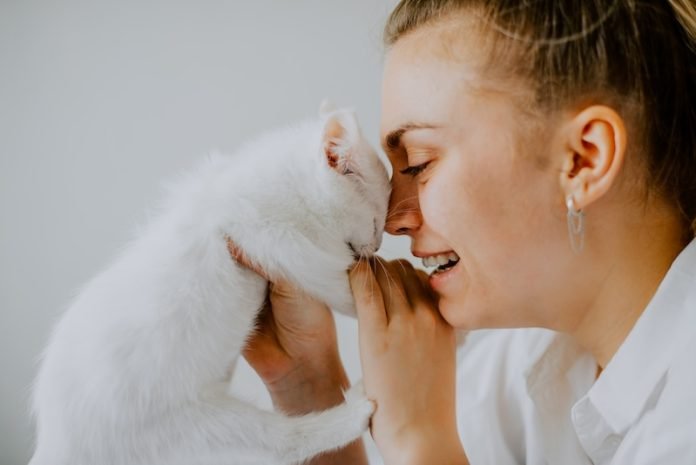
It’s common knowledge that dogs are loyal and loving pets, but what about cats?
Researchers from the University of Georgia and Brenau University have conducted a study that shows fostering a cat can help reduce loneliness in older adults.
This pilot study proves that cats, too, can be wonderful companions, especially for those in their golden years.
Susan Cannone, among the 29 participants, joined this study in 2020. To be a part of it, volunteers had to be over 60, living alone, and without any other pets.
Cannone, like many others, couldn’t bear the emptiness of coming home to an empty house. “To have somebody waiting and happy to see you makes all the difference,” she said.
Participants, including Cannone, underwent cognitive and health assessments before being allowed to choose a cat to foster.
Co-investigator Sherry Sanderson, from the College of Veterinary Medicine at the University of Georgia, assisted Cannone in selecting her cat from the Athens Area Humane Society. Cannone describes her first encounter with her cat as “love at first sight.”
Loneliness is more than just a feeling; it’s a serious issue. In May 2023, the U.S. Surgeon General released a study labeling loneliness and isolation as an epidemic.
This prompted researchers like Kerstin Emerson from the College of Public Health at UGA and others to look for interventions. Could fostering cats be a solution? This study aimed to find out.
Cats, according to Sanderson, are ideal pets for older adults. They don’t require the physical effort that dogs do, like daily walks, which is great for owners with health issues. Yet, they’re social enough to keep their owners engaged.
Don Scott, from the Augusta University-University of Georgia Medical Partnership, noted that while much research has focused on the benefits of dog ownership, this study is one of the first to show that cats can also help decrease feelings of loneliness in older adults.
Participants in the study agreed to foster shelter cats for at least four months, with an option to adopt after the first month. They were asked to report on the comfort and effects the cats had on their physical and mental well-being.
For those who adopted, their satisfaction was measured again at 12 months. To encourage participation, the study covered veterinary care, food, and adoption fees.
Scott highlighted that an attachment to a pet can improve health, especially in older women.
However, he cautions that not all older adults are suitable for pet ownership due to physical or cognitive limitations, and there are risks like falls or animal-related injuries.
The study found successful matches, like Marion Newburn and her cat Frankie, named after her second husband. Cats, known for being less obedient than dogs, can still form strong bonds with their owners.
Frankie, for example, enjoys cuddling with Newburn while she reads at night and even helps around the house by catching bugs.
Cannone’s cat, Starbucks, has also become an essential part of her life, greeting her excitedly when she comes home and even catching a snake that had entered her house.
This study not only highlights the potential of cats to be loving and helpful companions but also sheds light on the broader issue of loneliness among older adults.
It suggests that fostering or adopting a cat could be a valuable way to bring joy and companionship into the lives of those who may need it most.
If you care about mental health, please read studies that vegetarian diet may increase your depression risk, and Vitamin D could help reduce depression symptoms.
For more health information, please see recent studies that ultra-processed foods may make you feel depressed, and these antioxidants could help reduce the risk of dementia.
The research findings can be found in The Journals of Gerontology: Series B.
Copyright © 2023 Knowridge Science Report. All rights reserved.



